'Avatar: The Last Airbender' isn't just great, it’s required watching for parents of queer kids
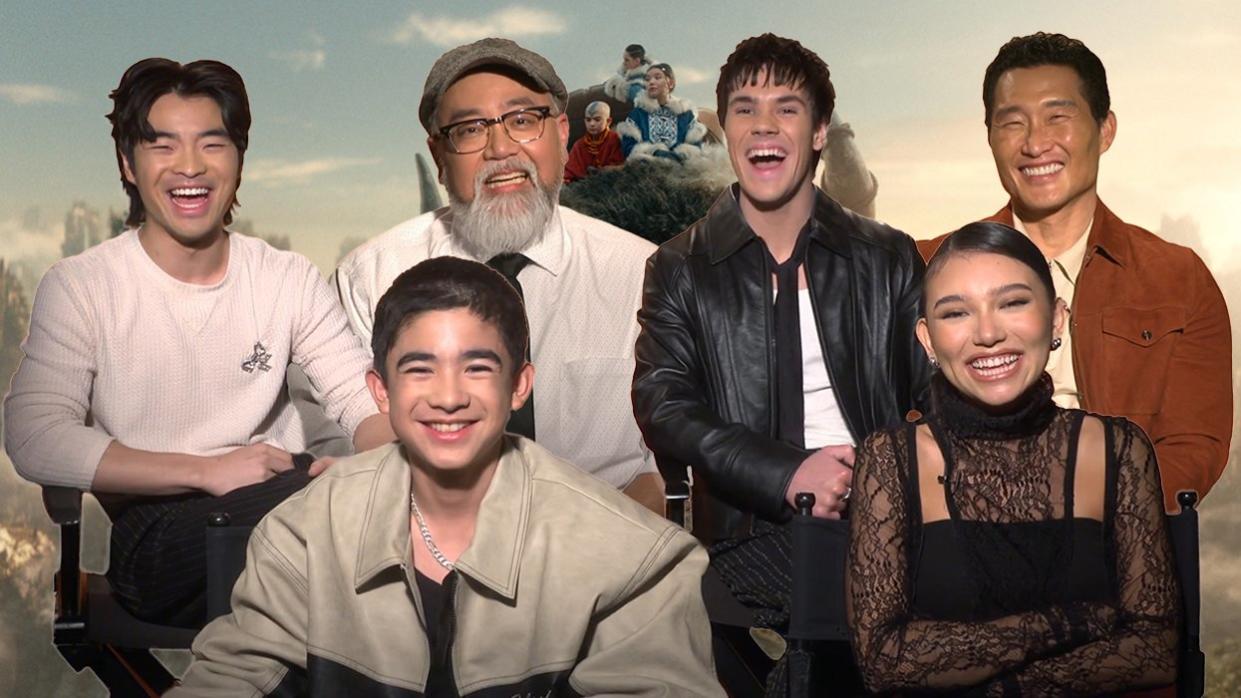
Avatar: The Last Airbender is a story that pivots around powerful dichotomies. A humble child who is born differently but powerful, another born with every privilege but stripped of it because of the forbidden love in his heart. A father broken by loss and determined to love unconditionally, a father whose love is conditional on his children’s willingness not to love. All of which can’t help but echo loudly in the hearts and memories of so many queer children (and the adults they grew up to be). The tension in these opposing forces are just a few of the many, many reasons Netflix’s new live-action Avatar: The Last Airbender series is both excellent and should become required viewing for queer folks — and their parents.
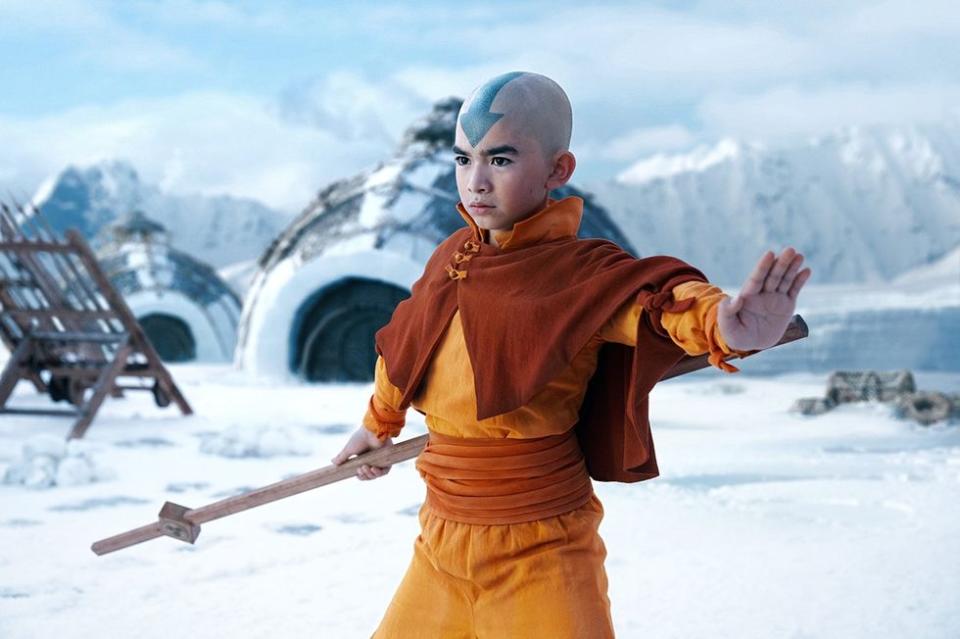
Courtesy of Netflix
For those unfamiliar with the series or its (also excellent) animated source material, the story follows a young boy named Aang (Gordon Cormier), an airbender who learns he is the Avatar, the one person who can control all the elements and must bring balance to the world. However, when a power-hungry Fire Nation declares war, Aang is lost, trapped in ice and powerless to help. When he’s freed 100 years later, he discovers an entirely new world, one totally out of balance and facing the fascistic creep of the Fire Nation, led by the cruel Lord Ozai (Daniel Dae Kim), who is hell-bent on total domination. With the help of his new friends, a waterbender named Katara (Kiawentiio) and her brother Sokka (Ian Ousley), Aang must learn to master the elements and save the world — that is, if Prince Zuko (Dallas Liu) and his Uncle Iroh (Paul Sun-Hyung Lee), who are hot on his trail, don't capture him first. The story is truly epic, and this live-action adaptation, which stays mostly true to the original series, captures the magic of the original beautifully — as does its pitch-perfect casting across the board.
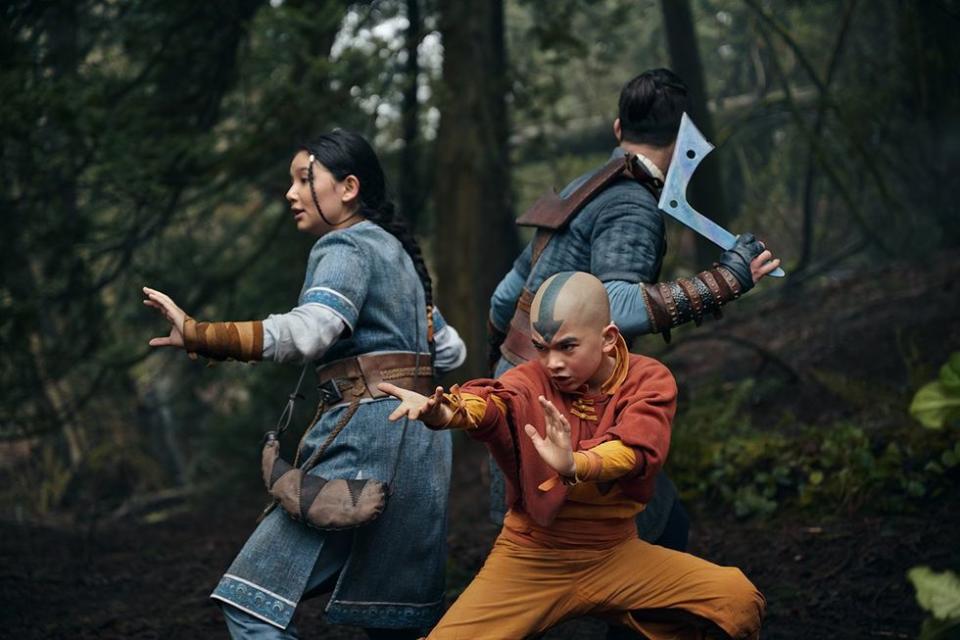
Courtesy of Netflix
But like the best of genre storytelling, it’s not just a rollicking good time (though it is indeed that as well) but explores profound, moving, and sometimes frightening themes like identity, fascism, the personal toll of revenge, and personal sacrifice.
That the series works on two levels is not lost on Kim. “My character, in particular, is a direct reflection on certain politicians we have today. I think you can draw a straight line between someone like Ozai and people who have been dictators in the past. What makes these people so greedy for power? What is the psychology of that? And what are the circumstances in our culture, in society, that allow those people to rise to power? Those same questions are being asked here in Avatar,” Kim tells PRIDE. “Those themes exist in the show for those people like yourself and me who look for them. They're not hard to find.”
Watch PRIDE's full interview with Daniel Dae Kim & Paul Sun-Hyung Lee below.

‘Avatar: The Last Airbender’s Daniel Dae Kim & Paul Sun-Hyung Lee on …
One of the most potent themes of Avatar is about otherness and self-acceptance. Both Aang and Zuko are struggling with that journey. In Aang’s case, it's coming to terms with who he has been told he must become; for Zuko, it's about being told to repress the truest and best parts of himself. Both align perfectly with the journeys queer kids experience depending on the kind of love, support, and acceptance they find at home.
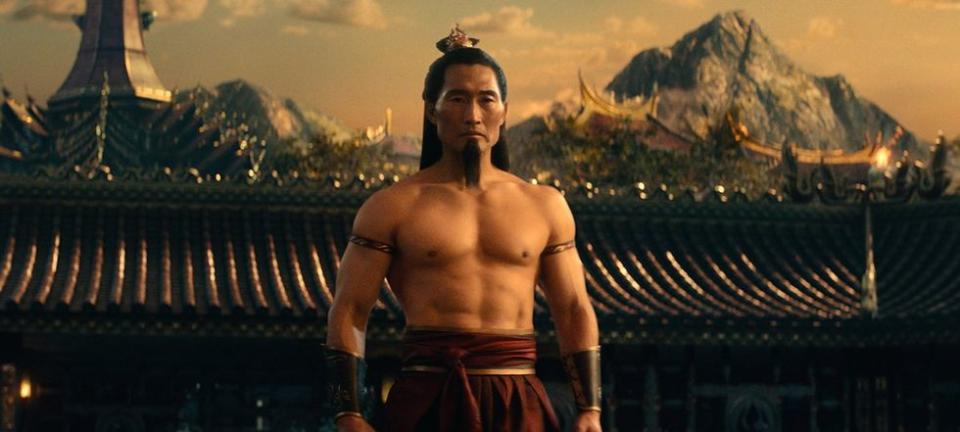
Courtesy of Netflix
For Zuko, that acceptance comes in the form of Iroh, who himself serves as a cautionary tale for parents who don’t allow their children to be themselves only to lose them. In Iroh’s case, this is represented by the loss of the warlord’s son to the war he was helping wage. When we meet Iroh, he is a changed man whose only priority is the well-being of his beloved but broken nephew.
“For Iroh to get to that point, he had to suffer a tremendous loss as well to put things in perspective. There's a lovely line from the animated series where he says, 'You have to decide who you really are. At the end of the day, do you become what's expected of you, what everybody says you are supposed to be, and follow your destiny? Or do you realize who you really are and follow that path?' Those are the affirming words that [he tells Zuko]. Iroh really wants Zuko to come to that conclusion on his own. He's not being prescriptive. He's not saying you need to do this, you need to do that. He's very hands-off. And he's like, 'This is your journey. You need to figure this out. And you need to be brave enough to follow who you really are.'” Lee tells PRIDE.
“Iroh was supposed to be the Fire Lord, he was the dreaded Dragon of the West who slaughtered thousands at the siege of Ba Sing Se, and it's not until he loses something so precious to him that the loss of Lu Ten scars him, and so he knows children are precious,” he explains.
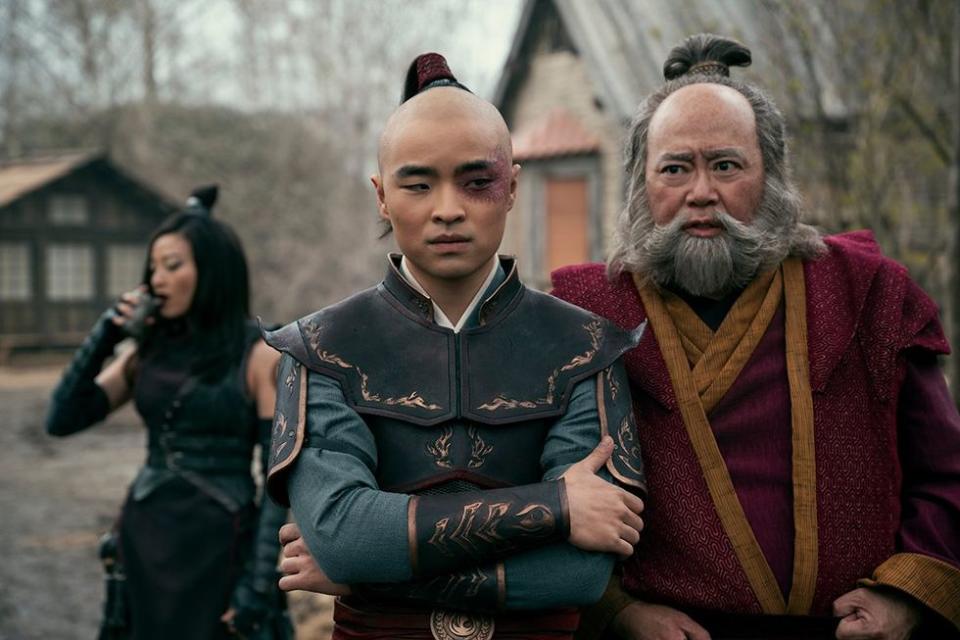
Courtesy of Netflix
Kim, who plays Zuko’s father and is the author of so much of the young man’s pain, recognizes how a parent's desire for who they want their children to be can be detrimental when it means expecting them to fundamentally change who they are. “Ozai has a really strong sense of what he wants for his children instead of seeing what his children are bringing to him and what they have to offer naturally,” he explains. “As a parent myself, it is definitely a combination of guiding and listening to your children. It's such a salvation for Zuko that he has Iroh.”
For Liu, the most important message that his character Zuko offers is never to give up. “It's a story about Zuko continuing to fight on. This comes not only with Zuko, his arc, and the journey that he goes on with Uncle Iroh, but Zuko never stops fighting,” he tells PRIDE.
Watch PRIDE's full interview with Gordon Cormier, Ian Ousley, Kiawentiio & Dallas Liu below.

‘Avatar: The Last Airbender’s cast opens up about how they connect to …
Otherness is a theme that frequently resonates with queer audiences and makes them feel connected to Aang’s journey. Aang is outside of the norm, and that leads to rejection by his peers and targeting by his enemies, but it's ultimately those differences that make him so powerful and aspirational. It’s a truly beautiful message and one that the young actor bringing him to live-action life, really connected with. “I feel like it just shows even if you're different, you can be something amazing,” Cormier tells PRIDE.
While some of the representation the new series offers is more subtle and less textual, one thing that really stands out is Netflix’s decision to stay true to the original animated series and feature an all-Asian and indigenous cast — a reversal from another live-action adaptation of the Avatar series that shall remain nameless. What that meant for Kiawentiio was that the Katara she brought to life felt much more like the character she connected with originally. “When I was growing up watching the show, being able to see myself in a character like Katara, it was a rare thing. So for me to be able to play her and for other little girls to see me and feel inspired, and to feel seen, that's really why I do this,” she tells PRIDE. Her co-star Ousely also learns that it’s alright to take a less expected path than one based on your gender, physicality, or birthright. Sokka presents at first as the annoying jock but comes to find that inventiveness and compassion are far more powerful weapons in his hands. “Sokka's arc is really interesting because he wants to be a warrior so badly but doesn't have any training,” Ousely explains to PRIDE. “He finds out that even though that's not really his gift ... you don't have to have that to be a hero.”
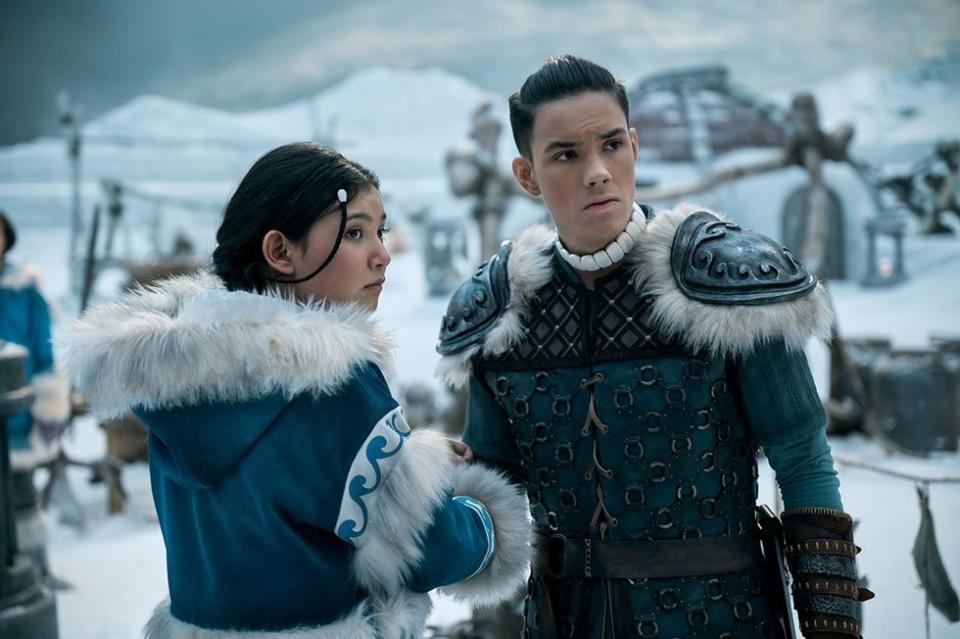
Courtesy of Netflix
Ultimately, the beauty of Avatar is that it works so well on many levels. Are you looking for a moving queer allegory? It’s here. Are you craving a tale about anti-racism and good triumphing over evil? Tune in. Are you just in the mood for a raucous adventure populated by lovable characters and adorable creatures that’s also rife with stellar action and gorgeous world-building? You better believe you’ll find that here too. So grab a friend, a family member, or even just a bowl of popcorn. You're in for a delightful and surprisingly profound ride.
I hope that people will be able to just like have fun with Sokka. I feel like he just loves fun more than anything else. And I hope people become more sarcastic after watching Sokka. Sokka's arc is really interesting because he wants to be a warrior so bad and the muscle but doesn't have any training and kind of finds out even though that's not really his gift. I hope that people just realize that you don't have to have that to be a hero in a sense, or like have that you can just be gifted in other things. It's not like the most important thing for whoever really
Avatar: The Last Airbender premieres February 22 on Netflix. Watch the trailer below
Avatar: The Last Airbender | Official Trailer | Netflix
